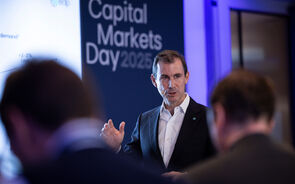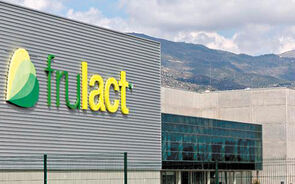Subpenny Trading
1 Mensagem
|Página 1 de 1
Subpenny Trading
By Nina Mehta
May 3 (Bloomberg) -- The biggest U.S. stock exchange operators asked regulators for permission to trade 30 securities in price increments of less than 1 cent, an attempt to win back business from private venues including dark pools.
NYSE Euronext, Nasdaq OMX Group Inc. and Bats Global Markets Inc. told the Securities and Exchange Commission in an April 30 letter that they should be allowed to start a six-month pilot program of quoting in half-cent tick sizes for stocks between $1 and $20. Jeromee Johnson, vice president for market development at Bats, confirmed the letter was sent.
Exchanges lost market share in low-priced stocks such as Citigroup Inc., which accounted for as much as 33 percent of U.S. trading in a single day last year, after the credit crisis. That’s because 1-cent increments represent a larger proportion of the stock price and traders can transact in much smaller ticks on dark pools, which aren’t subject to all of the same rules as exchanges. Dark pools don’t publicly display quotes.
One-cent increments have “resulted in a publicly displayed quote that is artificially wide for certain lower priced, liquid securities, and has caused a detrimental impact to the public price discovery process,” according to the letter, which hasn’t been posted on the SEC’s website yet.
Trading off exchanges may occur when mutual funds and other institutions seek to avoid publicly displaying their trading intentions. Broker-dealers may also want to avoid the transaction fees exchanges charge, which do not vary based on the price of a stock. Most exchanges give rebates to firms adding liquidity on their platforms and charge fees to those trading against those orders.
Freddie Mac, Pfizer
Citigroup, Freddie Mac, Pfizer Inc. and PowerShares QQQ are among the 30 securities that NYSE, Nasdaq and Bats recommended for inclusion in the pilot program. The roster is made up of 12 stocks listed on NYSE, 12 from Nasdaq and 6 exchange-traded funds, one of which -- the PowerShares QQQ -- has a price that exceeds $20.
A lot of trading activity is happening away from stock exchanges because of a desire to trade “within the spread,” or between the highest price at which investors are willing to buy a security and the lowest sale at which they would sell, Joe Mecane, executive vice president at New York-based NYSE Euronext, said at a conference in Phoenix on April 30. The minimum spread for stocks is 1 cent.
Mecane said there could be “pseudo NBBOs within the spread” at alternate trading venues. The NBBO refers to the national best bid or offer. In addition to dark pools, alternate platforms that don’t show public quotes include market-making firms executing orders for discount brokers within their own firms at the best price available on exchanges.
‘Artificially Wide’
Smaller quote increments may cut costs for investors by enabling them to sell at slightly higher prices and buy stock at slightly lower prices, the exchanges said. The SEC prohibited quotes at less than 1-cent increments, called subpenny pricing, for stocks $1 or higher in a 2005 rule that went into effect in 2007.
“The current quotation regime creates artificially wide public reference prices for some low-priced and liquid securities, driving some price discovery into dark markets,” Nasdaq told the SEC in a separate letter about the structure of the equities market on April 30. “Maintaining a one-penny increment by regulation can increase costs for investors when the spread would otherwise decline below one penny,” it added.
Trading Volume
Eric Noll, executive vice president for transaction services at New York-based Nasdaq, said at the Phoenix conference that the stock price shouldn’t be the sole consideration for determining an appropriate tick size. He said it should also depend on “volume characteristics” of the stock’s trading.
“A pilot would give us the ability to try something and see if it makes a noticeable, measurable difference,” Bats’s Johnson told Bloomberg. He added that a half-penny tick size is still bigger than exchanges’ transaction fee for taking liquidity from their books. Bats is based in Kansas City, Missouri.
For low-priced stocks this fee and the stock’s spread represent larger costs to investors than they do for higher- priced stocks. Since a half-penny spread is bigger than the maximum $0.003 fee per share that exchanges can charge, the SEC wouldn’t have to alter its current cap, Johnson said. Exchanges could decrease their transaction fees for lower-priced stocks if they want, he added.
Remember the Golden Rule: Those who have the gold make the rules.
***
"A soberania e o respeito de Portugal impõem que neste lugar se erga um Forte, e isso é obra e serviço dos homens de El-Rei nosso senhor e, como tal, por mais duro, por mais difícil e por mais trabalhoso que isso dê, (...) é serviço de Portugal. E tem que se cumprir."
***
"A soberania e o respeito de Portugal impõem que neste lugar se erga um Forte, e isso é obra e serviço dos homens de El-Rei nosso senhor e, como tal, por mais duro, por mais difícil e por mais trabalhoso que isso dê, (...) é serviço de Portugal. E tem que se cumprir."
1 Mensagem
|Página 1 de 1
Quem está ligado:
Utilizadores a ver este Fórum: Bing [Bot], Google [Bot], jprgodinho, latbal, Lisboa_Casino, m-m, malakas, Mavericks7, nickforum, nunorpsilva, O Magriço, PAULOJOAO, PMP69, SerCyc, Shift72, Simplório, trilhos2006 e 93 visitantes


